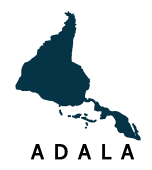The skin and the colonial scar. The tearing and splitting in two Palestinian and Israeli feminist artists: Emily Jacir and Sigarit Landau
Emily Jacir y Sigalit Landau
DOI:
https://doi.org/10.35305/cl.vi20.10Keywords:
feminism art, palestine artist, colonial scar, colonialism, ocupationAbstract
The article addresses Palestinian developments through feminist artistic practices that are sensitive to the concept that creates the "colonial scar" in the occupied Palestinian territories. From the work of the artists on one side and the other side of the wall: the work of the Palestinian artist in the diaspora Emily Jacir, who uses her split calf technique and immense doubles allows us to infer the edge of this latent colonial heritage. The work of the Israeli artist Sigalit Landau whose work is Hula Barbed (2000) is a visceral metaphor of the derailment of her skin by the friction of the spikes, a metaphor for this scar in these times of crimes against humanity, colonialism and the Palestinian apartheidization (Bidaseca, 2018). It is not only the threshold of compulsive racialization of the bell, but it is not necessary to only touch these bellows in the sensitive areas of our colonial scar.
Downloads
References
Aghazarian, Elise (2011) “Reflexiones sobre geografías racializadasentrevista con una socióloga palestina”. Entrevista por Karina Bidaseca. Revista Papeles de Trabajo 5(7): 271-281. Disponible en: https://dialnet.unirioja.es/servlet/articulo?codigo=7456892
Amado, Ana y Szurmuk, Mónica (2017) “Narrar la guerra a través de la forma”, Mora 23:169-178. Disponible en: http://revistascientificas.filo.uba.ar/index.php/mora/article/view/5208
Bidaseca, Karina (2014) "Mujer y cuerpo bajo control. Entrevista a Rita Segato". Revista Ñ, Diario Clarín, 8 de febrero de 2014. Disponible en: https://www.clarin.com/ideas/rita-segato-mujer-cuerpo-control_0_S1cTT1iDQg.html
Bidaseca, Karina (2017) “Palestina y sus mujeres bajo ocupación: los muros del apartheid y el ancho mar de las estrellas”. Revista Al Zeytun 2. Disponible en: https://ri.conicet.gov.ar/bitstream/handle/11336/77730/CONICET_Digital_Nro.3c6b4dbb-f446-495c-980a-5d29f0419343_A.pdf?sequence=2&isAllowed=y
Bidaseca, Karina (2018a) La amnesia del imperio: los muros del racismo, el aparteid y el
ancho mar de las estrellas. Buenos Aires: SB.
Bidaseca, Karina (2018b) La revolución será feminista o no será. La piel del arte feminista descolonial, Buenos Aires: Prometeo.
Carbajal, Mariana (2016) “A través de la víctima se viola a toda la sociedad. Entrevista a Rita Segato”, Página 12, 22 de julio de 2016. Disponible en: https://www.pagina12.com.ar/diario/sociedad/3-304897-2016-07-22.html
Fanon, Frantz (2009 [1952]) Piel negra, máscaras blancas. Madrid: Akal.
Gandarilla Salgado, J. y Reyna, J. (2017) “Todas las cicatrices: hacia una fenomenología de lo colonial en Frantz Fanon”, Revista Intersticios de la política y la cultura 6 (12) 31–65. Disponible en: https://revistas.unc.edu.ar/index.php/intersticios/article/view/18490
Leahy, Kristian (2010) “Barbed Hula”, Colección CA2M .Centro de Arte Dos de Mayo de la Comunidad de Madrid 1:122. Disponible en: http://www.madrid.org/bvirtual/BVCM010620.pdf
Mbembe, Achille (2016) Crítica de la razón negra. Buenos Aires: Futuro Anterior.
Minh-ha, Trinh (1993) “All-Owning Spectatorship”, en: Hamid, Naficy y Gabriel, Teshome (Ed.) Otherness and the Media: The Ethnography of the Imagined and the Imaged. Londres: Routledge, pp. 189-204.
Saadi, Ahmad y Abu-Lughod, Lila (2017) Nakba, Palestina, 1948 y los reclamos de la memoria. Buenos Aires: Canaán/CLACSO http://biblioteca.clacso.edu.ar/clacso/se/20180518032650/Nakba_Palestina.pdf
Said, Edward (1978) Orientalismo. Barcelona: Sudamericana.
Said, Edward (1996) Cultura e imperialismo. Buenos Aires: Anagrama.
Santos, Boaventura de Sousa (2010) Descolonizar el saber, reiventar el poder. Montevideo: Trilce.
Segal, Noam (2016) “Protest in Liminal Spaces, interview with Noor Abed”, Keen. On Magazine. Disponible en https://www.noamsegal.net/publications#/protest-in-liminal-spaces-interview-with-noor-abed/
Segato, Rita (2003) Las estructuras elementales de la violencia. Buenos Aires: Universidad de Quilmes-Prometeo.
Slymovis, Susan (2017) “La violación de Qula, una aldea palestina destruida”, en: Saadi Ahmad y Abu-Lughod, Lila Nakba, Palestina, 1948 y los reclamos de la memoria. Buenos Aires: Canaán/CLACSO. Disponible en: http://biblioteca.clacso.edu.ar/clacso/se/20180518032650/Nakba_Palestina.pdf
Video
Landau, Sigalit (2000) Barbed Hula.Video. Disponible en: https://iliveinacementery.tumblr.com/post/51029470132/barbed-hula-by-sigalit-landau-2000
Downloads
Published
How to Cite
Issue
Section
License

This work is licensed under a Creative Commons Attribution-NonCommercial-ShareAlike 4.0 International License.

















 Centro de Estudios sobre Diversidad Cultural
Centro de Estudios sobre Diversidad Cultural

